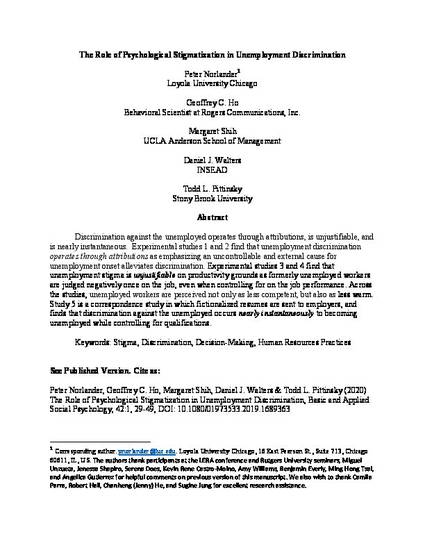
Article
The Role of Psychological Stigmatization in Unemployment Discrimination
Basic and Applied Social Psychology
(2020)
Abstract
Discrimination against the unemployed operates through attributions, is unjustifiable, and is nearly instantaneous. Experimental studies 1 and 2 find that unemployment discrimination operates through attributions as emphasizing an uncontrollable and external cause for unemployment onset alleviates discrimination. Experimental studies 3 and 4 find that unemployment stigma is unjustifiable on productivity grounds as formerly unemployed workers are judged negatively once on the job, even when controlling for on the job performance. Across the studies, unemployed workers are perceived not only as less competent, but also as less warm. Study 5 is a correspondence study in which fictionalized resumes are sent to employers, and finds that discrimination against the unemployed occurs nearly instantaneously to becoming unemployed while controlling for qualifications.
Disciplines
Publication Date
Winter January, 2020
DOI
https://doi.org/10.1080/01973533.2019.1689363
Citation Information
Peter Norlander, Geoff Ho, Margaret Shih, Dan Walters, et al.. "The Role of Psychological Stigmatization in Unemployment Discrimination" Basic and Applied Social Psychology (2020) Available at: http://works.bepress.com/peter-norlander/24/
